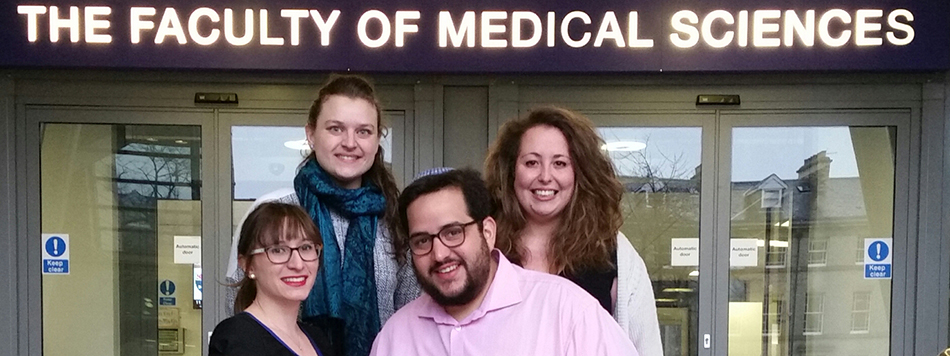FP7 POSAT Project
The prolong organ survival after transplantation (POSAT) project runs from March 2014 - September 2017. The project has two specific objectives. The first is the development of methods to reduce organ inflammation immediately after transplantation (thereby preserving long-term graft function). The second is the identification of biomarkers that allow transplant patients to be stratified allowing individualized drug treatment.
The project is sponsored by the European Commission FP7, Marie Curie-Initial Training Networks (ITN), Innovative Doctoral Programmes (IDP).
Four projects
Newcastle University has recruited four early stage PhD training fellows to foster translational research into the preservation of organ survival after transplantation (POSAT). The POSAT scheme will address this by training early stage researchers to function at this dynamic interface to address specific problems that contribute to chronic graft failure.
These complementary objectives will be addressed by allocation of a trainee-specific project to each of the four early stage researchers. Although based at Newcastle University, each trainee will spend significant periods working with carefully selected private sector partners and academics at another university in the North East of England.
Project 1: The role of HLA class II antibodies in chronic kidney rejection - Dr Gabriel Cantanhede
Project 2: Ischemia-Reperfusion Injury following Transplantation: implications for the modulation of CXCL8 and CXCL1 chemokine function - Ms Beatriz Martinez Burgo
Project 3: Identification of biomarkers in renal fibrosis - Ms Nina Jordan
Project 4: The role of Heparan Sulfate 3-O-sulfation in chronic renal fibrosis - Ms Laura Ferreras
Coordinators: Professor Simi Ali & Professor John Kirby
Associated Staff: Professor Neil Sheerin, Dr Chris Ward, Dr Vaughan Carter


